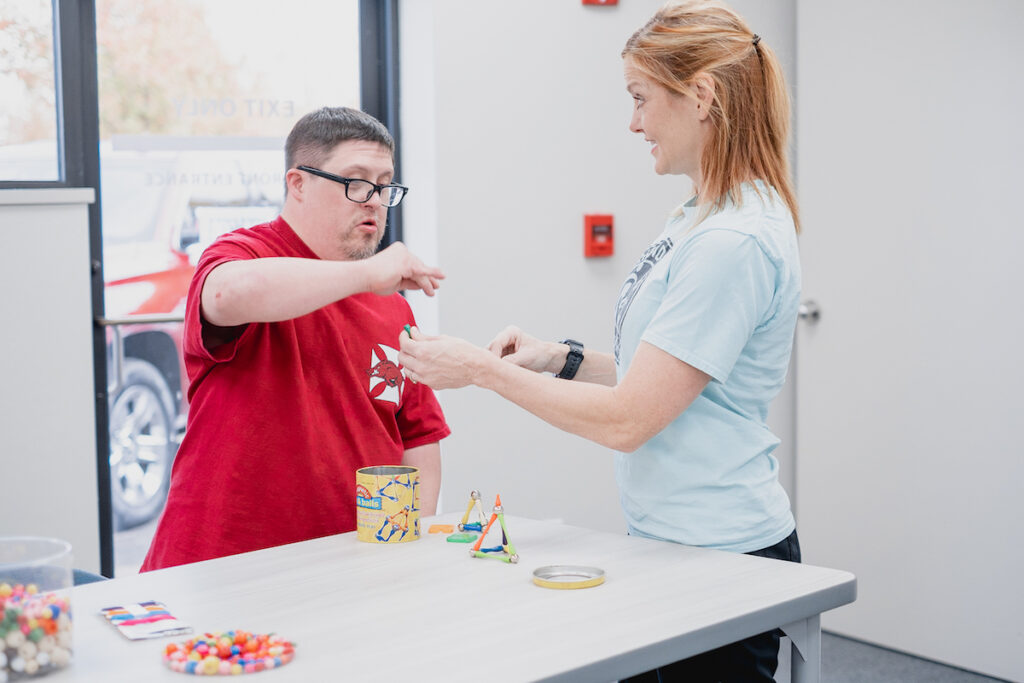« Back to Blog

Functional Cognition in Occupational Therapy: A Holistic Approach to Care
November 10, 2023Within the Occupational Therapy realm, functional cognition has emerged as a critical component. Functional cognition refers to the mental processes required to plan, understand, and perform daily activities. It's about how people use their cognitive abilities in actual real-world scenarios, and its role in OT cannot be understated.
Understanding Functional Cognition
Traditional cognitive assessments measure memory, attention, or executive functioning. However, functional cognition dives deeper. It looks at how these cognitive abilities are applied in real-world tasks. For example, while an individual might demonstrate good memory skills in a test environment, they might need help remembering instructions or routines in their daily lives.
Functional cognition is rooted in the understanding that daily activities are inherently cognitive. Whether cooking a meal, following a bus schedule, or managing medications, these tasks demand cognitive processes. And for many people, especially those with cognitive impairments or neurological conditions, there's a gap between cognitive abilities and everyday function. This gap is where OTs step in, addressing these discrepancies and facilitating better functional outcomes.
The Role of Occupational Therapy Practitioners
Occupational therapy practitioners view individuals holistically, considering physical, emotional, and cognitive aspects. When addressing functional cognition, OTs:
1. Assess: They use standardized assessments to measure functional cognitive abilities. These tools often involve real or simulated activities, like managing finances or planning a trip, to gauge how people use their cognitive abilities in practical situations.
2. Plan: Based on assessment results and the individual's personal goals, OTs develop interventions to improve or adapt how they handle daily tasks.
3. Intervene: The interventions can be restorative or adaptive. Restorative approaches aim to improve cognitive functions, while adaptive methods find alternative strategies to complete tasks. For instance, an OT might teach memory-enhancing techniques or introduce aids like alarms for medication management.
4. Educate: OTs are pivotal in educating clients, families, and caregivers about functional cognition. This might involve explaining cognitive strengths and challenges or suggesting environmental modifications to facilitate better cognitive function.
The Impact of Addressing Functional Cognition
Functional cognition interventions can significantly improve an individual's quality of life. For seniors with dementia, it could mean the difference between living independently and needing assisted care. For someone recovering from a traumatic brain injury, it could translate to resuming their pre-injury roles and responsibilities.
Moreover, there's an emotional and psychological aspect. Achieving autonomy and mastery over daily tasks boosts self-esteem and reduces feelings of dependency or helplessness. This can indirectly improve mental health and overall well-being.
Conclusion
In the continuously evolving field of occupational therapy, functional cognition is a shining example of how the profession adapts to meet the multifaceted needs of the individuals it serves. By addressing the cognitive underpinnings of everyday tasks, OTs can bridge the gap between ability and function, ensuring that each person can lead a fulfilling, independent life. In essence, functional cognition reaffirms the core ethos of occupational therapy: to enable individuals to live life to its fullest, no matter the challenges they face.
Therapeutic Resources always has cutting-edge positions that will let you contribute and enhance your skill set. To explore our innumerable part-time, full time and per diem pediatric and adult-based positions, Therapeutic Resources would love to speak with you! Send us your information here, and a placement manager will be in touch within 24 hours. Talk to you soon!
